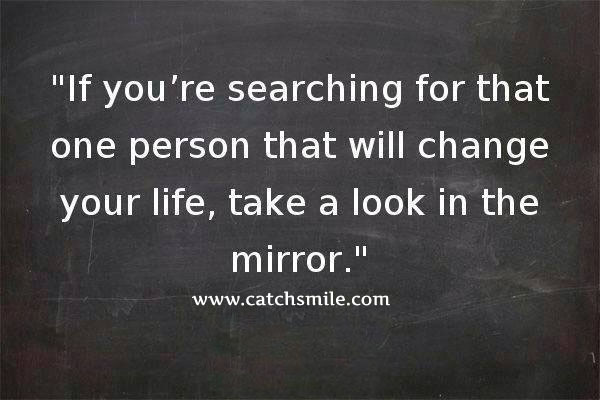Every coaching client is unique, yet occasionally I fall into situational vortex in which (it seems) everyone I’m coaching shows up with the same issue. In the past few weeks that challenge has been Other People: “My director this, my coworker that, my boss is, my partner should, I wish she would, I’m frustrated he won’t….” and so on. The theme: “They should be different from the way they are!”
Sometimes it feels trite to say, “You can’t change other people. You can only change you.” Yet that is the (capital T) Truth of it. So I offer an invitation: “Let’s bring it back to you.” When the coaching continues from a client-centric space, it always leads to realization that the client CAN change the situation — by changing something about her/himself.
Seeking some more clever or useful ways to make this point, I posed the challenge to my Facebook tribe, and received dozens of alternatives (thus this month’s essay is partially crowd-sourced).
What Is Also True?
True: “You can’t change other people.” Assuming you want a situation to change, what options do you have? Here are six.
- 1. You can Choose To Respond differently. Notice your pattern of behavior and consider that you may be more than half the “issue” because you allow yourself to be triggered by their predictable behavior, or because you’re doing something that triggers them. Remember that you are half of every conversation, so if you change your part, the conversation will still shift.Maureen shared a story: “I was dealing with my aging parents and my dad not doing anything re: my mom’s Alzheimer’s. A friend and social worker told me I needed to “detach,” change the dance. So I changed both my outlook and my behavior (not theirs, didn’t criticize) and Voila! What happened? My dad changed his behavior because I stopped trying to “fix” him and the situation. It didn’t happen immediately, but within a month we had a better relationship and I wasn’t stressed all the time over what I couldn’t control!
- 2. You can change your perspective, or the “story” you’re telling. I challenge my clients to look at the situation from the other person’s point of view. What do “they” value? The other person’s behavior often becomes “logical” thru that different lens. They’re not being difficult, they just don’t see it like you do. Once you honor the other person’s story, it opens up new possibilities about finding common ground or changing your own tactics.
- 3. You can make better Requests and/or you can explain yourself differently. A frequent whine is “they aren’t doing like I want them to.” Well, how have you asked? Are you assuming they see it your way? Can you be certain they hold the same values?A Request is more powerful than a wish or an expectation. Try this: “I Request you do X (action) by Z (deadline) using Y (metrics of success).” When you spell out the details and the other person agrees, you’ve got a commitment. So change how you ask.
- 4. You can learn something from them. If you believe The Universe only sends you what you can handle, seek the lesson in your challenging relationship. If this person triggers something in you, practice Patience. If their disorganization drives you crazy, maybe you need to work on Flexibility. Or work on your Compassion.
- 5. You can accept and love them, exactly as they are. Suffering is the result of arguing with reality. If your partner is not (and never has been) skilled at giving positive feedback, why do you continue to expect them to be your source of affirmation? Who is really the problem?OK, in the workplace you can argue that your boss should be better at affirming you, but if every day you picked up a rattlesnake and got bit, whose fault is that? If you choose to keep living with a rattlesnake, or a negative Nellie, notice that you can “suffer” or you can admire what a great rattlesnake they are and look elsewhere for your daily dose of honey.
- 6. You can speak the truth and trust others to be adults. This is the toughest. When you find yourself “stuck” I challenge you to consider if you might be using “it’s about them” as an excuse to avoid your own discomfort. You’re a strong person AND so are they! Trust they put on their Big Girl pants this morning, and if you do something that challenges them, they’ll figure it out. You don’t always have to “take care of” everyone else.I close with a client story: My client’s company is on the verge of huge changes that will force reorganization (and not everyone can be in charge, right?!). My client has the assignment to design a new org chart. The boss keeps stalling. The uncertainty is causing key leaders to polish their resumes. The team is swimming in assumptions that “others” can’t handle the conversation. So, do you wait for “them” to change, or do you step up and make something happen? What would you do?
Remember, Leadership is not about a title; anyone can be a leader who works first on self, and takes responsibility for the clarity of conversations and expectations.
Footnote: Life Wisdom Need Not Be Heavy
I close with some humorous suggestions: You can’t change others, but you CAN…
…make a mean grilled cheese.
…mind your own business.
…rearrange the furniture.
…get back on your medication.
…unfriend them on Facebook.
…marry them (because love).
…change your address.
…review them on Amazon.
…change a diaper.
…build a wall.
and my personal fave: …you can always eat Chocolate!


